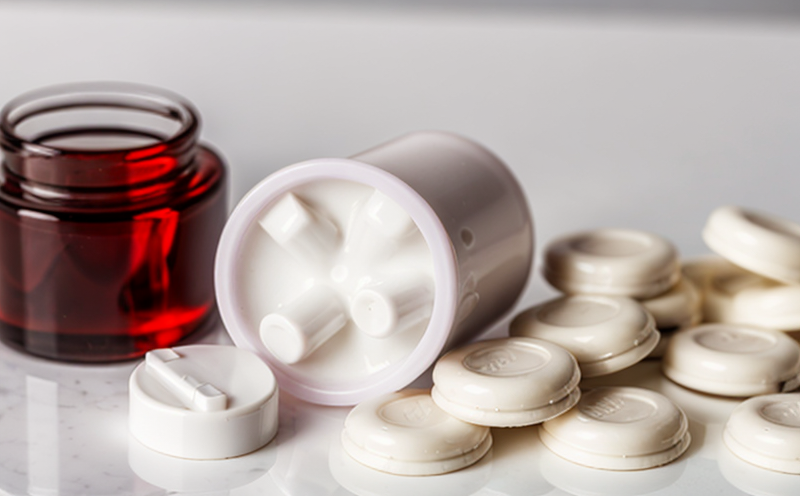USP Multiparticulate Capsule Dissolution Testing
The USP Multiparticulate Capsule Dissolution Test is a critical quality control method used to ensure that oral solid dosage forms meet the dissolution requirements set forth by United States Pharmacopeia (USP) monographs. This test is essential for pharmaceutical manufacturers as it directly impacts drug product performance and patient compliance.
The multiparticulate capsule consists of small particles or granules, which may be coated or uncoated. Dissolution testing assesses the rate at which these capsules disintegrate in a simulated stomach environment (buffered aqueous solution). The test is performed using various USP apparatus such as the paddle-blade or basket method to mimic different gastrointestinal conditions.
The dissolution profile provides critical information about the drug's bioavailability and bioequivalence. Variations in dissolution rates can indicate issues with manufacturing processes, excipient selection, or formulation stability. Consistent compliance with USP standards ensures that medications are safe and effective for patients.
In this testing method, the capsule is placed into a solution at a specified temperature and time point. The sample is agitated according to predefined conditions, and aliquots of the release medium are withdrawn periodically for analysis using appropriate analytical techniques like HPLC or UV-Vis spectrophotometry.
The primary goal of USP multiparticulate dissolution testing is to ensure that all active ingredients are released within acceptable limits, thereby guaranteeing product efficacy. This process involves rigorous sample preparation and accurate measurement. Samples must be prepared under strictly controlled conditions, including temperature regulation and precise weighing.
Understanding the importance of this test requires knowledge of its role in ensuring drug stability and consistency across batches. Compliance with USP standards is a legal requirement for pharmaceutical manufacturers seeking FDA approval or marketing authorization from other regulatory bodies.
Scope and Methodology
| Test Parameters | Description |
|---|---|
| Dissolution Medium | Buffered aqueous solution at a specified pH level to simulate gastric conditions. |
| Average Residence Time (ART) | The time it takes for 80% of the drug content to dissolve under specific agitation rates and temperatures. |
| Instrumentation | Description |
|---|---|
| Paddle-Blade Apparatus | An apparatus designed to simulate the movement of a drug in the stomach, ensuring consistent agitation. |
| Basket Apparatus | Used for testing larger particles or tablets that do not pass through the basket holes. |
- The test must be conducted at a temperature of 37°C ± 0.5°C, unless otherwise specified by USP.
- Dissolution testing should follow a predetermined time point, typically ranging from 1 to 6 hours depending on the drug's dissolution profile.
Eurolab Advantages
Our expertise in USP multiparticulate capsule dissolution testing allows us to deliver accurate, reliable results that meet both industry and regulatory standards. Our team of skilled scientists ensures that every test is conducted under the most stringent conditions, providing peace of mind for manufacturers.
- Accurate and precise data collection using state-of-the-art equipment.
- Comprehensive understanding of USP guidelines and standards.
- Experienced personnel who can interpret results effectively.
- Quick turnaround times without compromising on quality.
Customer Impact and Satisfaction
- Ensures compliance with USP monographs, enhancing product reliability.
- Improves drug performance by identifying potential issues early in the development process.
- Safeguards patient health through consistent quality control measures.
- Aids in regulatory approval processes by providing robust data.
- Reduces costs associated with rework and recall due to non-compliance or substandard products.
- Promotes brand reputation through consistent quality assurance practices.
- Fosters better relationships between manufacturers and regulatory bodies.
- Enhances customer trust by delivering high-quality, safe pharmaceuticals.





